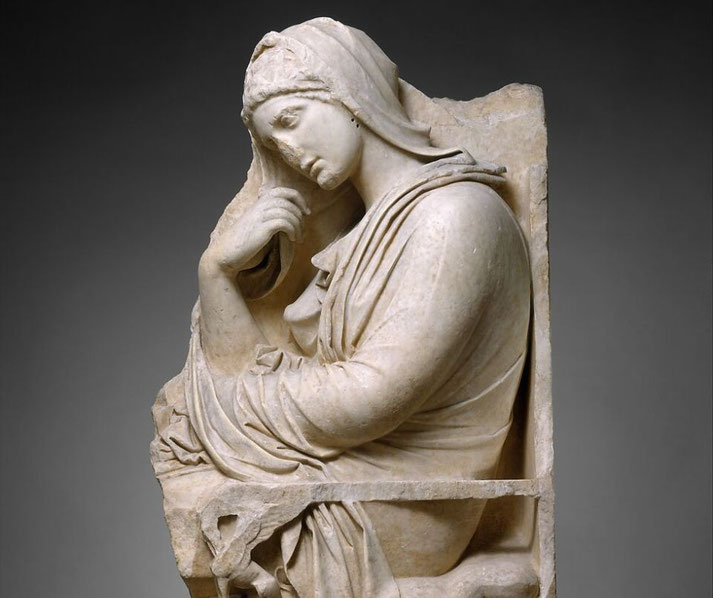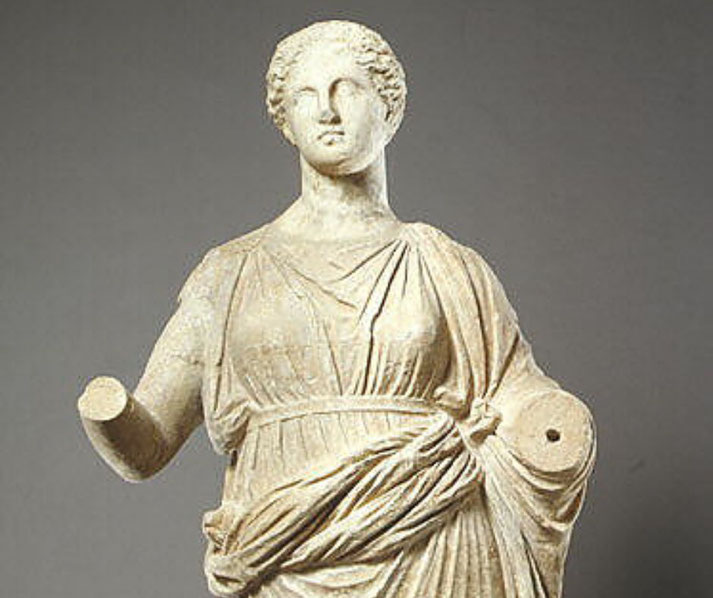What was life like for women in ancient Athens?

What did it mean to be a woman in ancient Athens, a city celebrated for democracy but built on rigid inequality? Under the authority of fathers, husbands, and male relatives, Athenian women lived in a world that limited their public presence and predominantly confined them to the home.
However, behind those walls, they played an indispensable role. Athenian wives managed the household, raised children, and took charge of domestic affairs: responsibilities that were vital to the functioning of the family and, by extension, the city itself.
What rights did women actually have?
Under Athenian law, women were placed under the guardianship of a male relative, known as kyrios.
This guardian, who was typically the father, husband, or closest male family member, controlled many aspects of a woman’s life.
He handled her financial transactions and legal decisions, and women could not own property independently.
In fact, they required permission from their kyrios for any significant legal or financial matter.
As a result, women lived in a state of constant dependence on the male figures in their lives.
Because citizenship was the foundation of Athenian democracy and extended only to men, women were excluded from political and legal participation.
Citizenship granted the right to vote, hold office, and participate in the Assembly, all privileges denied to women.
This meant women had no formal voice in decisions shaping the city-state. They could not represent themselves in court either. Instead, their kyrios acted on their behalf.
In addition to being excluded from legal and political rights, Athenian women faced severe limitations on their personal freedom.
The concept of guardianship remained a fundamental part of Athenian law, ensuring that women were kept under male supervision throughout their lives, regardless of age or social status.
Confined to the private sphere of the home, or oikos, their movements were closely monitored.
Marriage contracts were typically arranged between male relatives, with little involvement from the women.
Consequently, a woman’s life was largely shaped by decisions made by others, leaving her with minimal autonomy.

Marriage and family life: A woman's world at home
Typically, marriages in ancient Athens were arranged to strengthen family alliances or secure economic benefits.
Women had little influence in choosing their husbands, as their primary role in marriage was to ensure the continuation of the family line by producing legitimate children, particularly sons.
Athenian society placed great importance on legitimate offspring. Sons would inherit the family property and ensure the continuity of the family line.
Consequently, marriage was seen as a civic duty closely tied to the stability of Athenian society.
The bride’s family provided a dowry, typically consisting of land, money, or valuable goods, as part of the marriage agreement.
This dowry ensured the wife’s financial security, which would be returned to her family in the event of divorce or her husband’s death.
As a result, dowries could enhance the social standing of both families. However, this system also limited a woman’s autonomy, as her financial security remained dependent on her family and husband.
Once married, the wife was responsible for managing the household, overseeing servants, preparing meals, and maintaining supplies like food and clothing.
In wealthier families, wives often had additional responsibilities, including overseeing agricultural production and handling the household’s finances.
This also involved child-rearing, where mothers taught basic skills and values to their children.
Efficient household management by the wife was considered critical to maintaining a respectable family.
How were women educated in Athens?
Unlike boys, who were often educated in reading, writing, and philosophy, Athenian girls received little formal education beyond what was necessary for managing a household.
Their intellectual training took place within the family, where mothers or other female relatives taught them essential domestic skills.
These skills included weaving, cooking, and child-minding, which were considered crucial for a woman’s role as the head of the oikos.
In wealthier families, some daughters were taught basic reading and writing skills to manage household accounts or compose letters.
However, this education did not encourage intellectual exploration. Therefore, most women remained illiterate and were unable to engage with the philosophical or political works that shaped Athenian intellectual life.
Figures like Aspasia, who was known for her influence over Pericles and involvement in intellectual circles, were rare and often viewed with suspicion.
Public spaces, particularly those connected to politics and intellectual life, were reserved for men.
As a result, women rarely appeared in public, except during religious festivals or funerary rites, which allowed them to step briefly outside their prescribed private roles.
Women, seen as too emotional for the rational decisions needed in public life, had their voices silenced in all major decisions affecting Athens.
This rigid division between public and private life reinforced women’s exclusion from broader civic participation.

What did women do in the home?
Women were responsible for ensuring that food was prepared, supplies were maintained, and that servants or slaves efficiently carried out their tasks.
In wealthier households, although slaves performed much of the manual labor, the mistress of the house still managed and supervised their work.
As a result, the smooth functioning of the home depended on the woman’s ability to manage resources and labor effectively.
Weaving also held a central place in the daily routine of Athenian women, who were expected to produce clothing and textiles for their household.
Women spent long hours at the loom, weaving garments for their family members, a practice seen as a reflection of their diligence and moral virtue.
Additionally, the production of cloth had economic value, as surplus textiles could be sold or used in trade.
As a result, weaving became one of the few ways in which women directly contributed to the economic stability of their families.
However, despite their confinement to the private sphere, Athenian women influenced public life indirectly through their roles in managing the household and raising future citizens.
By raising sons who would later serve in the Assembly and perform military duties, women contributed to the political future of the city.
Their role in producing and educating male citizens was critical to Athenian identity, but their influence remained largely unacknowledged in formal public life.
Religious life: How important were women in worship?
When possible participating in religious festivals allowed Athenian women were able to step beyond the confines of the home.
Festivals such as the Thesmophoria, which was dedicated to Demeter, were even exclusively reserved for women and celebrated fertility and the agricultural cycle.
During these events, women gathered to perform rituals and make offerings, ensuring the gods’ favor for the city’s prosperity.
This collective participation in public religious ceremonies allowed women to act in a space otherwise dominated by men.
In addition to public festivals, women were responsible for honoring the gods of the home, such as Hestia, the goddess of the hearth.
They also made offerings to ancestors, which ensured the continued favor of the gods toward the family.
In some cases, women held the prestigious position of priestess, which granted them considerable authority in religious affairs.
Priestesses were chosen for their piety and noble status and oversaw temples and conducted rituals for specific gods.
The priestess of Athena Polias, for example, served in Athens’ most important temple and participated a central role in the annual Panathenaic festival, which honored Athena, the city’s patron goddess.
Priestesses held significant responsibilities, including managing temple finances, leading processions, and conducting sacrifices.
Their religious authority granted them a unique position in Athenian society, one where they exercised power that was otherwise unavailable to women in other areas of life.
Famous women of ancient Athens
In the male-dominated society of ancient Athens, a few notable women left significant marks despite the restrictions placed upon them.
Among these figures, Aspasia is perhaps one of the most influential. Originally from Miletus, Aspasia became the partner of Pericles, Athens’ most prominent statesman.
Her intellectual influence on Pericles and her active involvement in Athenian society were extraordinary, given that most women were excluded from public life.
Aspasia was known for hosting discussions with leading thinkers, including Socrates, which led to speculation about her role in influencing Athenian politics and culture.
Her presence in these intellectual circles made her an exception in a society that typically restricted women’s involvement in such matters.
Through her relationship with Pericles, Aspasia achieved a level of influence rare for Athenian women.
Some rumors suggested that she had a hand in drafting Pericles’ famous speeches, including the Funeral Oration.
Although these claims remain unconfirmed, they highlight how her contemporaries viewed her as a woman of considerable intellect.
However, her public visibility also attracted criticism. Comic playwrights like Aristophanes satirized her, often blaming her for Pericles’ political decisions.
This reaction reflects the discomfort Athenian society had with women who defied traditional roles.
Another notable figure was Agnodice, who, according to legend, disguised herself as a man to practice medicine in Athens.
In a city where women were prohibited from working as physicians, Agnodice’s story—whether true or mythological—illustrates the extreme lengths some women took to enter male-dominated professions.
After her identity was revealed, Agnodice was put on trial, but her female patients defended her, which led to a change in the law allowing women to practice medicine.
What do you need help with?
Download ready-to-use digital learning resources
Copyright © History Skills 2014-2025.
Contact via email
With the exception of links to external sites, some historical sources and extracts from specific publications, all content on this website is copyrighted by History Skills. This content may not be copied, republished or redistributed without written permission from the website creator. Please use the Contact page to obtain relevant permission.





